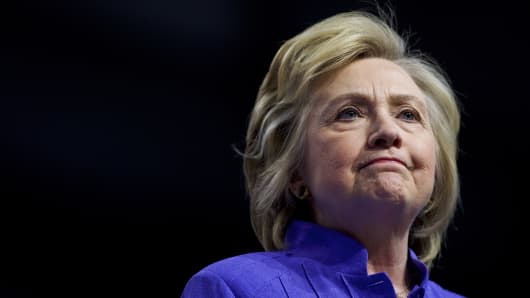Hillary Clinton is leading Donald Trump in Florida by just half of a point, according to the RealClearPolitics average of all current polls.
Top Clinton campaign strategists are becoming increasingly worried about carrying the 29-electoral vote Sunshine State on Election Day. And they should be. Trump has won four of the last seven published Florida statewide polls for one thing, but there's something even more troubling for Team Clinton: Strong African American voter turnout is very much in doubt.
For all the talk about how demographic trends and the growth of minority populations are all moving in favor of Democrats in national elections, the fact is that Hillary Clinton desperately needs unusually high minority voter turnouts to win the White House. This is not something unique to Clinton. Almost 10 months ago, David Wasserman at 538 crunched the numbers and realized that even a relatively small dropoff in African-American voter turnout would mean any Democrat running for president would lose Florida. To be more specific, black voters in Florida had 66 percent voter turnout in 2012. If that falls back to the 2004 level of about 60 percent, Hillary loses Florida.
To avoid this scenario, Clinton is going to lean on President Obama and First Lady Michelle Obama to make multiple campaign appearances in Florida. But that may not work out as well as she hopes. We may have already had a preview of President Obama's message to black Floridians when earlier this month he said that he would take it as a "personal insult" if blacks do not turn out to vote for Clinton in strong numbers.
But shouldn't his pitch be less about him and more about how his policies have helped the African American community make economic and other strides since he took office? Usually it would. But there's a lot of doubt about whether blacks are better off than they were eight years ago. And with so many black voters now focusing on police shootings of black men in several recent incidents, any kind of "happy talk" from President Obama may not go over well.



